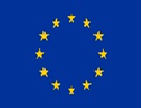Partners

The partnership/Consortium consists of:
- the Centre for European Constitutional Law (CECL) a research organization focusing on fundamental rights research, innovative capacity building and evidence based policy interventions.
- the National and Kapodistrian University of Athens, Faculty of Communication and Mass Media.
- the General Secretariat for Family Policy and Gender Equality (GSFPGE) the competent body on gender issues.
The Centre for European Constitutional Law is a public benefit institution and research centre, founded in 1995 and based in Athens, Greece. The Centre’s objectives are to promote the development of democratic institutions and the welfare state, to deepen European integration and to strengthen international cooperation under the principle of respect to the cultural identity of each state. Three specialized units operate within the structure of the Centre: Unit for Better Regulation, Educational Policy Unit and Social Policy Unit.
The Centre has implemented institutional and capacity building projects in more than 25 countries, mainly in the areas of legal and judicial reform, human rights and administrative reform. It is the national focal point of the European Network of Fundamental Rights (FRANET) of the European Union Agency on Fundamental Rights-FRA. It participates in the activities of international organizations with Observer Status. It coordinates the “Constitution-Making and Constitutional Change Research Group” of the International Association of Constitutional Law. The CECL is certified for the services it offers by ISO 9001:2008.
The National and Kapodistrian University of Athens, Faculty of Communication and Mass Media is one of the newest departments of the oldest and largest university in the country. The last twenty-seven years the Department has been constantly growing, while a great number of its students excel in print and electronic media, in research, and other activities in Greek society and culture. The University has a Gender and Equality Office which is a structure that aims at observing and studying issues related to the equality and equal treatment of sexes and includes a gender perspective in its studies
The General Secretariat for Family Policy and Gender Equality (GSFPGE) is a public body supervised by the Ministry of Labour, Social Security and Social Protection as of July 2019. It is a governmental agency competent to plan, implement, and monitor the implementation of policies on equality between women and men in all sectors.
The General Secretariat implements co-financed Programms and Actions through the Coordination, Managing and Implementation Authority for co-funded actions of the Ministry of Interior. Its mission is to plan, implement, and monitor the implementation of policies for equality between women and men in all sectors, specifically promoting and realizing legal and substantive gender equality in all sectors of social, political and economic life.
The partnership was structured on the basis of expertise and complementarity, the effort to combine analysis and field interventions and an evidence based approach, a multisectoral and multidisciplinary cooperation and sustainable exploitation of results.
The core project team on behalf of CECL consists of Ms Zoi Anna Kasapi and Ms Eleni Tentegianni as project managers; Ms Antonia Kagia as financial manager; Pr. Xenofon Contiades, Dr. Maria Mousmouti and Ms Annie Camarioti as experts.
For the UoA, Faculty of Communication and Mass Media Prof. George Pleios will act as Project Manager, while Dr. Despina Chronaki and Dr. Sophia Kanaouti as experts.
GSFPGE is represented by Dr. Katerina Loukidou, Giorgos Pateropoulos and Sophia Nikolaou as gender experts, as well as Sophia Mitropoulou and
Anna Panou, officers at the Special Agency for Management and Implementation of the Ministry of Interior (EYDE-YPES).


This Project was co-funded by the European Union’s Rights, Equality and Citizenship Programme (2014-2020). Τhe content of this website represents the views of the author only and is his/her sole responsibility. The European Commission does not accept any responsibility for use that may be made of the information it contains.
